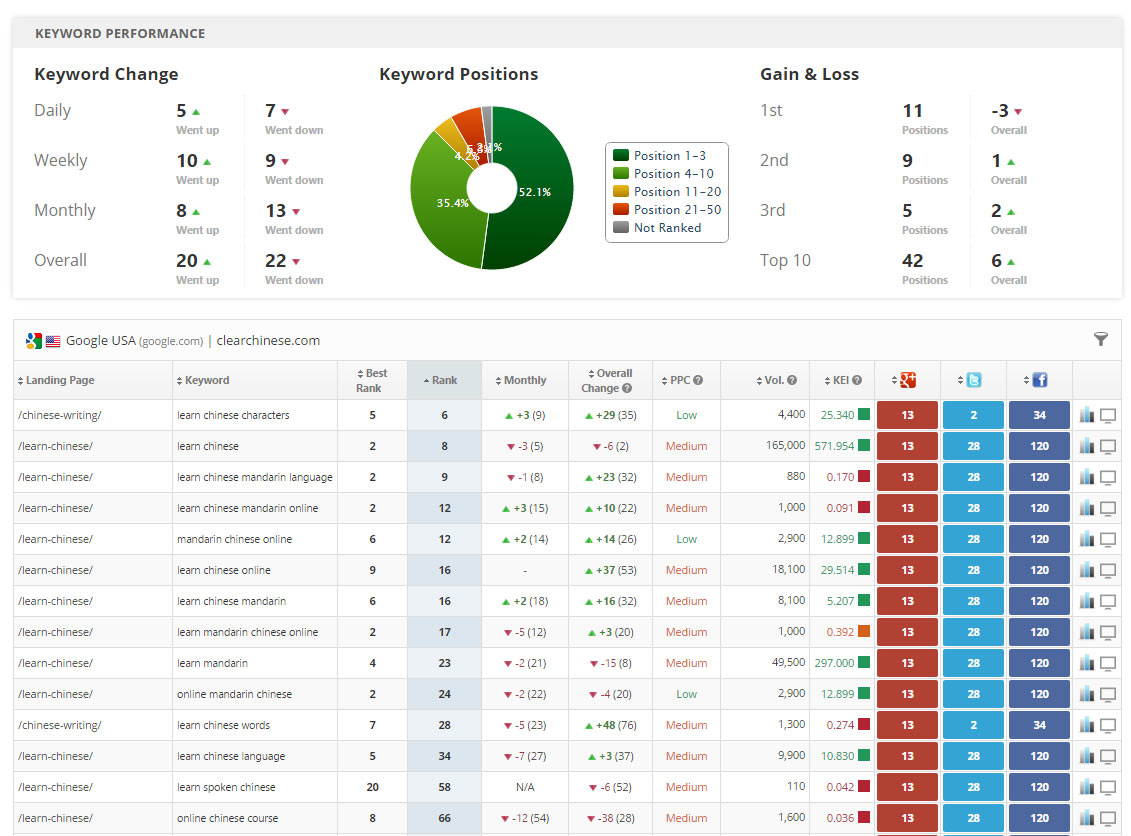The Ultimate Guide to BaoXing Bags
Explore the latest trends and styles in BaoXing bags.
Where Did My Keywords Go? The Mystery of Rank Tracking
Uncover the secrets behind disappearing keywords and master rank tracking. Don't let your SEO efforts vanish—dive into the mystery now!
Uncovering the Secrets: Why Your Keywords Might Be Vanishing
In the ever-evolving landscape of SEO, understanding why your keywords might be vanishing is crucial for maintaining your blog's visibility. One common reason is the shift in user search behavior; as trends change, so do the keywords that people use to find information. If you've been relying on a static list of keywords without updating them, you're likely missing out on valuable traffic. To combat this, perform regular keyword audits and analyze user intent by utilizing tools like Google Trends and search query reports.
Another factor that can contribute to the disappearance of your keywords is increased competition. As more blogs and websites focus on similar topics, your previously high-ranking keywords may become overshadowed. It's essential to adopt a proactive approach; consider diversifying your content strategy by exploring long-tail keywords and niche topics that align with your audience's interests. Additionally, optimize your content for semantic search to capture a broader range of related queries and maintain your position in the search results.

Is Your Rank Tracking Accurate? Common Pitfalls Explained
When it comes to SEO, understanding the accuracy of your rank tracking is crucial for measuring performance. Many site owners assume their tracking tools are providing precise data, but common pitfalls can skew the results. For example, geo-targeting can result in discrepancies if your tracking tool isn't configured to recognize user locations accurately. Additionally, fluctuations in search results due to personalized search results can distort your rankings. If you're not accounting for these variations, you could end up with overly optimistic or pessimistic assessments of your site's position.
Another frequent mistake is failing to update your rank tracking settings regularly. Search engines are constantly evolving, and if you're relying on outdated methodologies, your data may become irrelevant. Moreover, using a single tracking tool without cross-referencing other metrics can lead to a skewed perception of your SEO effectiveness. To ensure your rank tracking remains accurate, it's advisable to use a combination of different tools and techniques. Implementing these best practices can help you get a clearer picture of your search visibility and optimize your overall strategy.
The Great Keyword Mystery: How to Track and Adapt Your SEO Strategy
In the world of digital marketing, the keyword is the cornerstone of any successful SEO strategy. However, understanding how to effectively track these keywords and adapt your approach can feel like solving a complex puzzle. To begin unraveling the great keyword mystery, it's essential to leverage various tools and analytics to monitor your website’s performance. Using platforms like Google Analytics or SEMrush, you can identify which keywords are driving traffic to your site, how your rankings change over time, and which content resonates most with your audience. This data helps you pinpoint opportunities for improvement and identify potential gaps in your content.
Once you've gathered your data, the next step is to adapt your SEO strategy based on these insights. Consider creating an adaptation plan that addresses three key areas:
- Content Creation: Develop new articles or resources that target high-potential keywords you've identified.
- On-Page Optimization: Refresh existing content by including relevant keywords in strategic locations like headings, meta descriptions, and alt text.
- Competitor Analysis: Study the keyword strategies of your competitors to uncover successful tactics they employ.